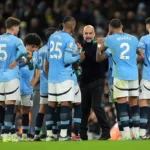League of Legends competition is not just a game; it’s a global phenomenon that has reshaped the landscape of competitive gaming and esports. Since its release in 2009 by Riot Games, League of Legends (LoL) has evolved from a simple multiplayer online battle arena into a cornerstone of the esports industry, captivating millions of players and spectators worldwide.
The Rise of a Global Esport
The journey of LoL from a niche game to a leading esport is a testament to its intricate gameplay and dedicated community. Early competitions were modest affairs, often held in small venues with limited audiences. However, as the game’s popularity soared, so did the scale and grandeur of its tournaments. The annual League of Legends World Championship now draws viewership numbers that rival traditional sporting events like the Super Bowl, with prize pools reaching into the millions of dollars. The 2020 World Championship, for example, boasted over 45 million concurrent viewers during the finals, showcasing the massive global interest in the game.
Strategic Depth and Team Dynamics
One of the core reasons behind LoL’s competitive success is its deep strategic complexity. Players must master over 150 champions, each with unique abilities, roles, and playstyles. Success in competition hinges on team synergy, strategic planning, and split-second decision-making. Matches are a blend of macro-level strategies, such as map control and objective prioritization, and micro-level mechanics, including precise skill execution and individual outplays. Teams must coordinate their tactics, adapt to opponents on the fly, and execute plays with precision, making each match a thrilling spectacle filled with unexpected twists and turns.
The Players Behind the Screens
Professional LoL players have become celebrities in their own right, with fan bases that span the globe. They dedicate countless hours to practice, often training for over ten hours a day to hone their skills to perfection. Their journeys often inspire fans, highlighting stories of perseverance, teamwork, and the relentless pursuit of excellence. Players like Faker, considered by many to be the greatest of all time, have become icons within the community. These players not only showcase exceptional talent but also contribute to the ever-evolving meta of the game, influencing how the game is played at all levels.
Impact on the Gaming Industry
The success of LoL competitions has had a profound impact on the gaming industry. It has spurred the growth of esports infrastructure, including dedicated arenas like the LCS Studio in Los Angeles and the LEC Studio in Berlin, professional leagues in multiple regions, and robust broadcasting platforms that deliver high-quality streams to fans worldwide. Sponsors and advertisers have recognized the potential of esports, investing heavily in teams and events. This commercial interest has helped legitimize esports as a viable and sustainable career path, leading to increased support for players in terms of salaries, training facilities, and professional development.
Community and Culture
Beyond the professional scene, LoL has fostered a vibrant community culture. Fans engage through forums, social media, fan art, cosplay, and community events like viewing parties and fan conventions. The shared passion for the game transcends borders, bringing together people from diverse backgrounds and cultures. This sense of community enhances the overall experience, making LoL more than just a game, but a shared cultural phenomenon. The game’s lore and universe have expanded through music videos, animated series like “Arcane,” and other multimedia projects, further deepening the connection between the game and its fans.
The Future of LoL Competition
Looking ahead, the future of League of Legends competition seems brighter than ever. With continuous updates, new content, and Riot Games’ commitment to innovation, the game remains fresh and engaging. Upcoming tournaments promise to push the boundaries of competitive play, introducing new formats and technologies that enhance both player and spectator experiences. Riot’s expansion into other media and gaming genres, such as the auto battler “Teamfight Tactics” and the mobile version “Wild Rift,” also opens up new avenues for competitive play and community engagement.
Conclusion
League of Legends competition has undeniably transformed the esports landscape. Its blend of strategic depth, thrilling gameplay, and a dedicated community has set new standards for competitive gaming. As we witness the ongoing evolution of LoL, one thing remains clear: its impact on esports and gaming culture will continue to resonate for years to come. Whether you are a seasoned player, a casual fan, or someone new to the world of esports, the phenomenon of League of Legends offers a unique and exciting experience that is shaping the future of entertainment.
 Join Daily Trust WhatsApp Community For Quick Access To News and Happenings Around You.
Join Daily Trust WhatsApp Community For Quick Access To News and Happenings Around You.


